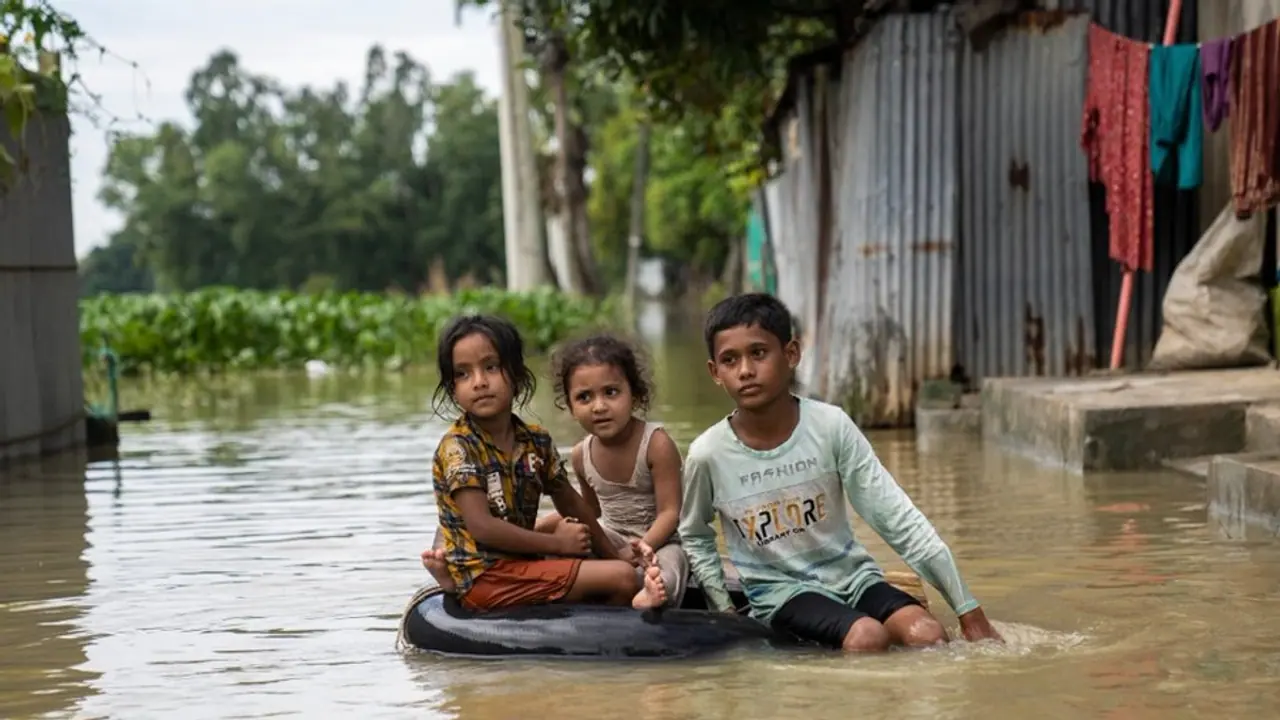The death toll from floods in Bangladesh rose to 71 on Tuesday with millions of people still stranded in devastated areas and increasing concern about outbreaks of waterborne disease as the inundation recedes.
In a grim turn of events, the death toll from the devastating floods in Bangladesh surged to 71 on Tuesday, as relentless monsoon rains and torrents from upstream rivers continue to wreak havoc across the region. With millions still stranded in inundated zones, mounting apprehensions loom over potential outbreaks of waterborne diseases as the floodwaters slowly recede.

The floods, triggered by relentless monsoon rains and runoff from upstream waterways, have wreaked havoc over the past two weeks, causing widespread destruction and affecting around five million people.
Over 580,000 families remain marooned in 11 severely affected districts, grappling with an acute shortage of essential supplies such as food, clean water, medicine, and dry clothing.
In a concerted effort to alleviate the suffering, nearly 500 medical teams, in coordination with the army, air force, navy, and border guards, are on the frontlines of the relief operations.
Authorities are now shifting their focus to averting the spread of waterborne diseases, a dire consequence of such calamitous events, while striving to ensure access to potable water. The Directorate General of Health Services has reported a staggering influx of nearly 5,000 individuals hospitalized in the past 24 hours alone, suffering from ailments ranging from diarrhoea and skin infections to snake bites.
In the capital, Dhaka, the torrential rain on Tuesday submerged numerous districts, inundating roads, further resulting in traffic snarls as vehicles struggled through the waterlogged roads.
A 2015 assessment by the World Bank Institute had already flagged the vulnerability of 3.5 million Bangladeshis to annual river flooding—a risk exacerbated in recent years by the relentless advance of climate change.
In response to the unprecedented scale of this disaster, the United Nations Children's Fund (UNICEF) has issued a fervent appeal for $35 million to deliver critical aid. The agency highlights that two million children are at severe risk due to what has been described as Bangladesh's most severe flooding in three decades.
Emma Brigham, Deputy Representative of UNICEF Bangladesh, underscored the dire situation, "Year after year, the lives of millions of children in Bangladesh are being devastated by floods, heatwaves, and cyclones. Climate change is clearly altering children's lives."
